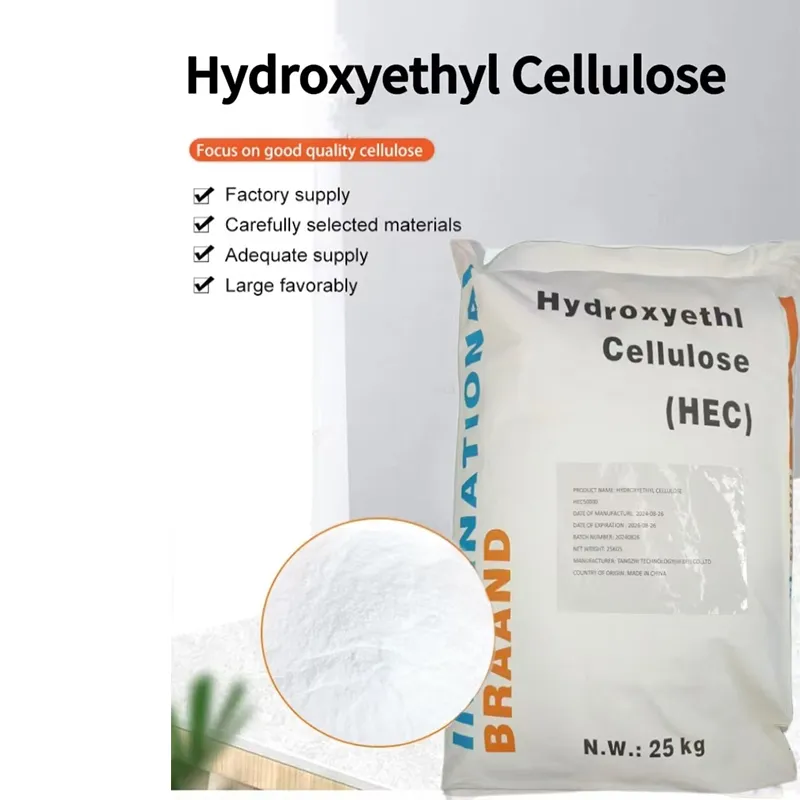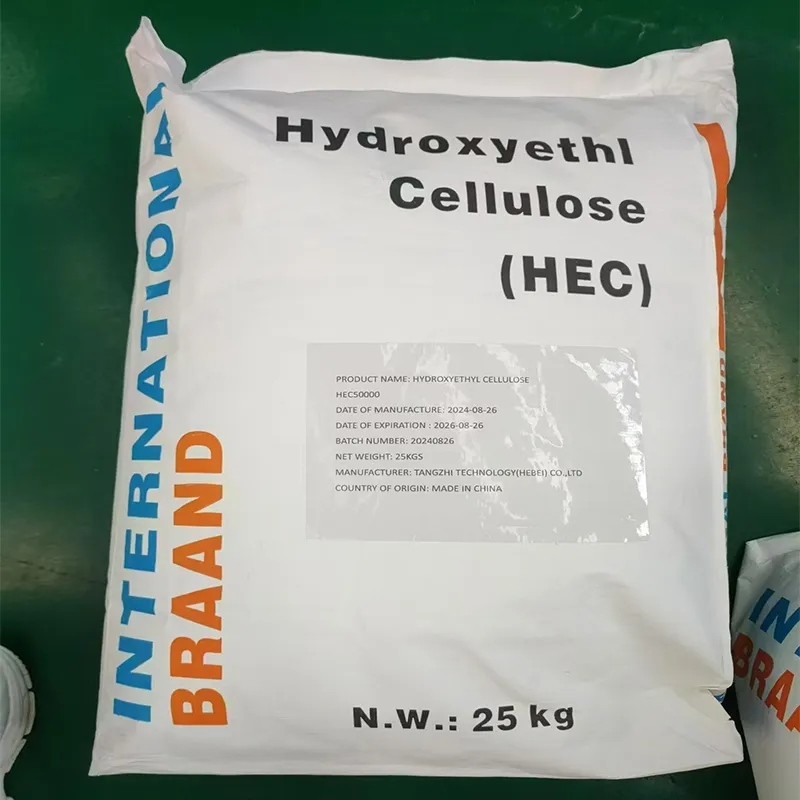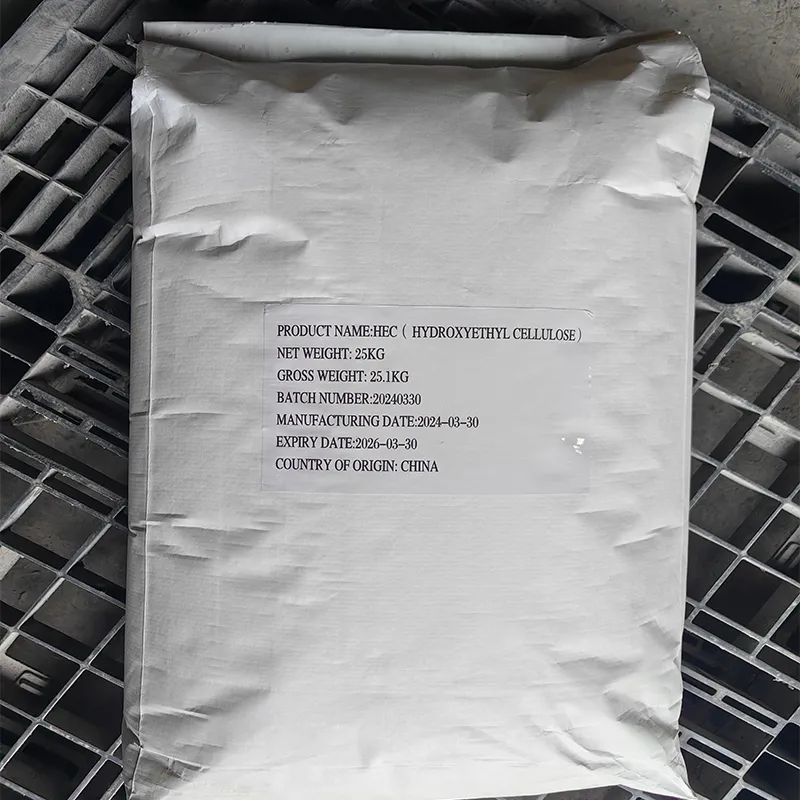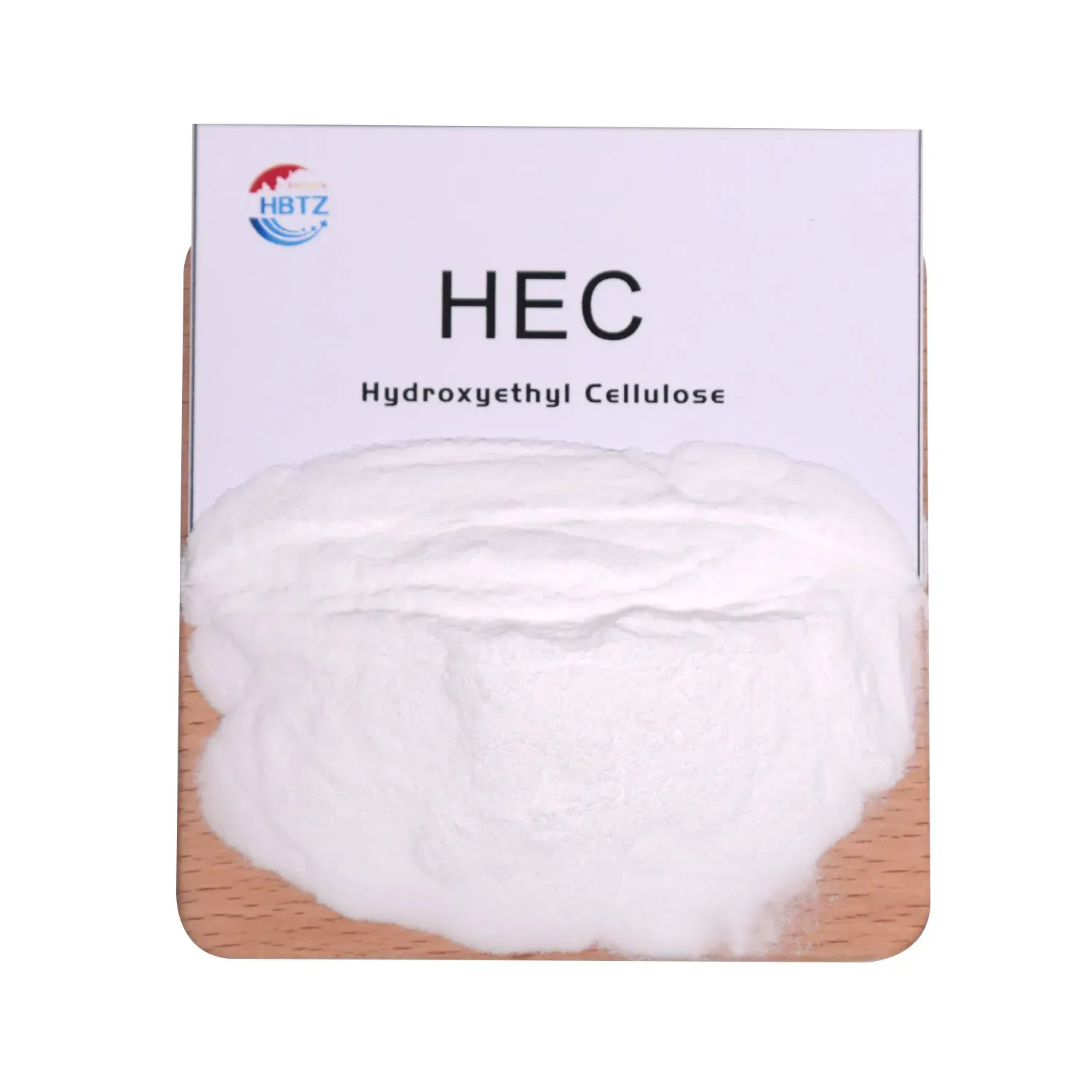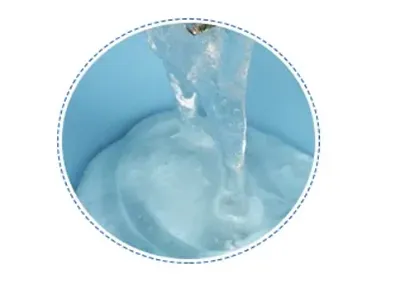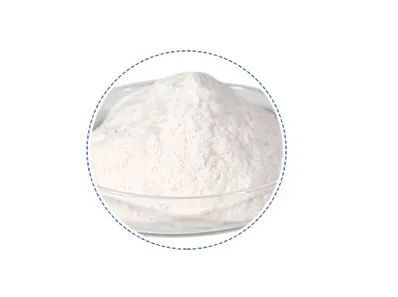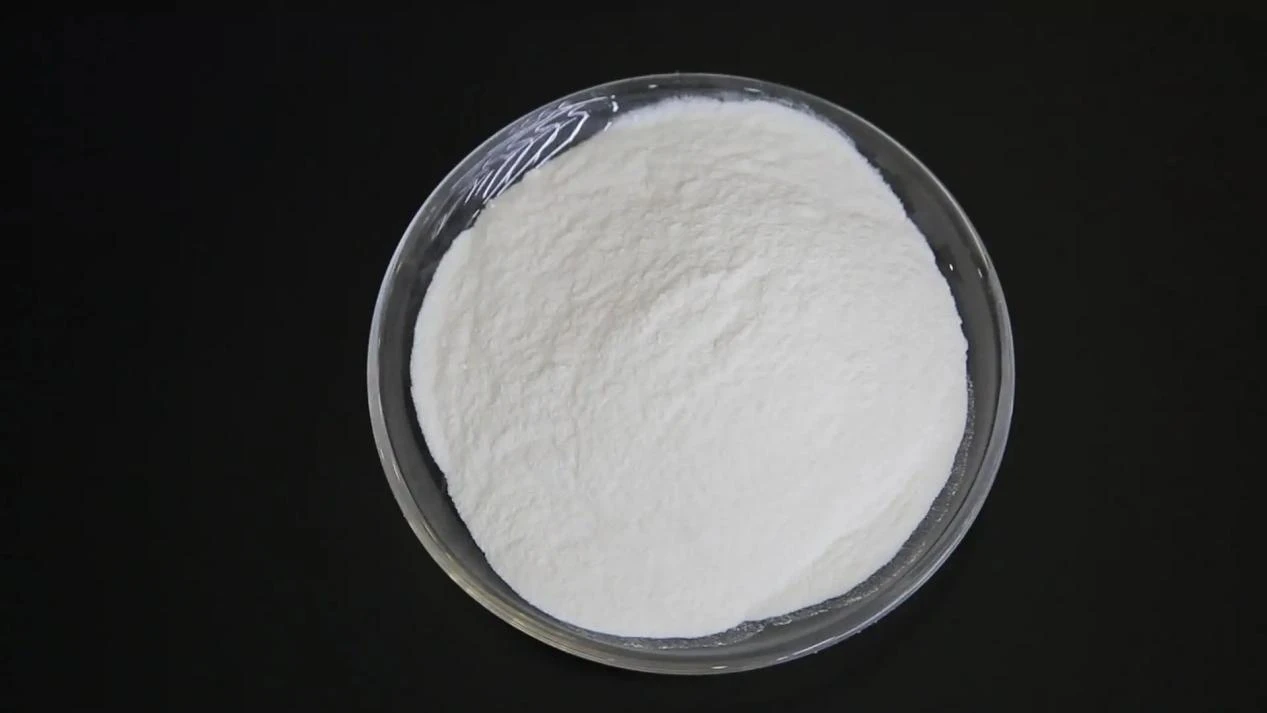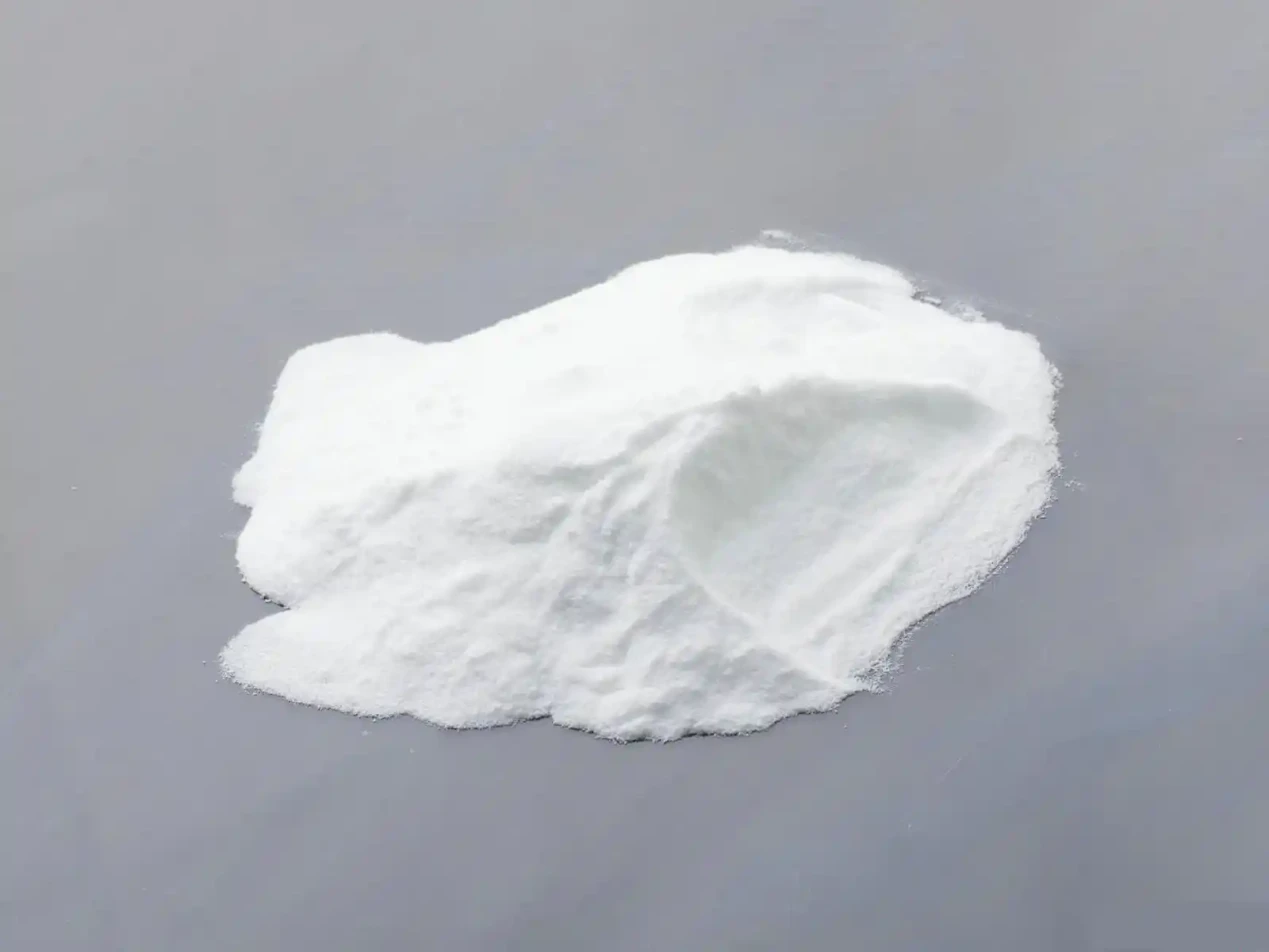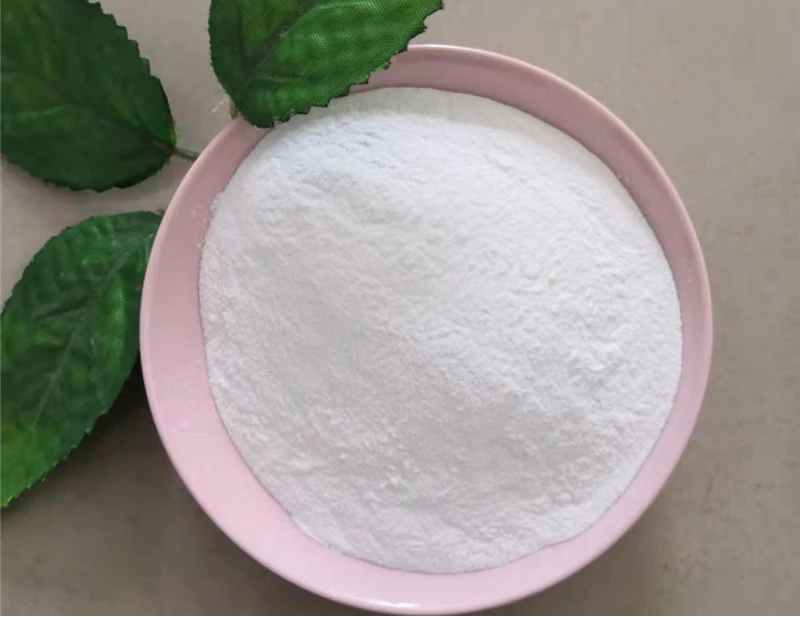Hydroxyethyl Cellulose (HEC)

It is a white or light yellow, odorless, non-toxic fibrous or powdered solid with good thickening, suspension, dispersion, emulsification, adhesion, film formation, moisture protection and protective colloid properties. It has been widely used in oil extraction, coatings, construction, medicine and food, textiles, papermaking and polymer polymerization.
|
Item |
Range |
|
Moisture |
≤6.0% |
|
Ash Content |
≤5.0% |
|
Particle size |
<0.180mm: min.98.5% |
|
Particle size |
<0.150mm: min.90.0% |
|
PH(1%solution) |
6.0—8.5 |
|
Viscosity 2% absolutely dry,25±0.1℃, 20°GH Brookfield RV,20rpm,sp.6 |
25,000-100,000 |
|
Expression density |
0.35-0.61g/ml |
|
Decomposition temperature |
205-210℃ |
1. Good thickening effect
In surfactant, it has good thickening properties.
2 . Good water retention
The paste will not dry too fast and crack after application.
3 . Good bonding
It can be used in the product to have a good bonding effect.
What Is Hydroxyethyl Cellulose Hec Used For?
-
 01
01HEC Medical
It is mainly used in the preparation and processing of drugs, which plays the role of thickening, stabilization, suspension and bonding.
-

02
HEC For Cement Mortar
It is mainly used as a thickener and retarder of cement mortar, which plays a role in improving the working performance of cement mortar and improving its impermeability.
-
 03
03HEC For Coatings and Tile Adhesives
It can be used to prepare building materials such as waterproof coatings and tile adhesives to improve the waterproof performance and decorative effect of buildings.
-
 04
04HEC For Cosmetics
In the cosmetics industry, hydroxyethyl cellulose is mainly used as a thickener, stabilizer, suspension agent, and moisturizer. It can increase the viscosity of cosmetics, improve the texture and stability of cosmetics, and prevent the separation and precipitation of cosmetics during storage.
-
 05
05HEC For Food
It is mainly used as a food additive, which plays the role of thickening, stabilizing, suspension and preservation. It can be used to improve the stability of food and prevent the separation etc.
The production process of hydroxyethyl cellulose mainly includes raw material preparation, alkalization treatment, etherification reaction, washing and separation, drying and crushing.
1.Raw material preparation:
First, select high-quality natural cellulose raw materials, such as cotton linters or refined pulp, and perform pretreatment, including screening, drying and crushing, to ensure the quality and uniformity of the raw materials1.
2.Alkalization treatment:
The pretreated cellulose is placed in a reactor and sodium hydroxide solution is added for alkalization treatment. Alkalization treatment can destroy the crystal structure of cellulose, making it easier for subsequent etherification reaction.
3.Etherification reaction:
Ethylene oxide is added to the alkalized cellulose, and an etherification reaction is carried out under the action of a catalyst. This is a key step in the preparation of hydroxyethyl cellulose, which changes the properties of cellulose by introducing ether bonds.
4.Washing and separation:
After the etherification reaction is completed, the product is washed and separated to remove impurities such as unreacted ethylene oxide, sodium hydroxide, and catalyst. The washing process usually uses water washing to ensure the purity of the product.
5. Drying and crushing :
The washed product is dried and crushed to obtain the final hydroxyethyl cellulose product. This step may include using paint thinners (such as toluene, isopropyl alcohol, etc.) for the reaction, and after the reaction is completed, separation, drying and crushing are performed to obtain high-quality hydroxyethyl cellulose products.
This product is packed in multi-layer paper bags lined with polyethylene layer. Net weight 25 kg.
Empty bags can be recycled or incinerated. Unopened packaging can be stored for several years. Open packaging can affect the moisture content of this product affected by air humidity. Store in a cool, dry place away from sunlight. Avoid storage under pressure.
For information on product handling, shipping, and storage, see MSDS.
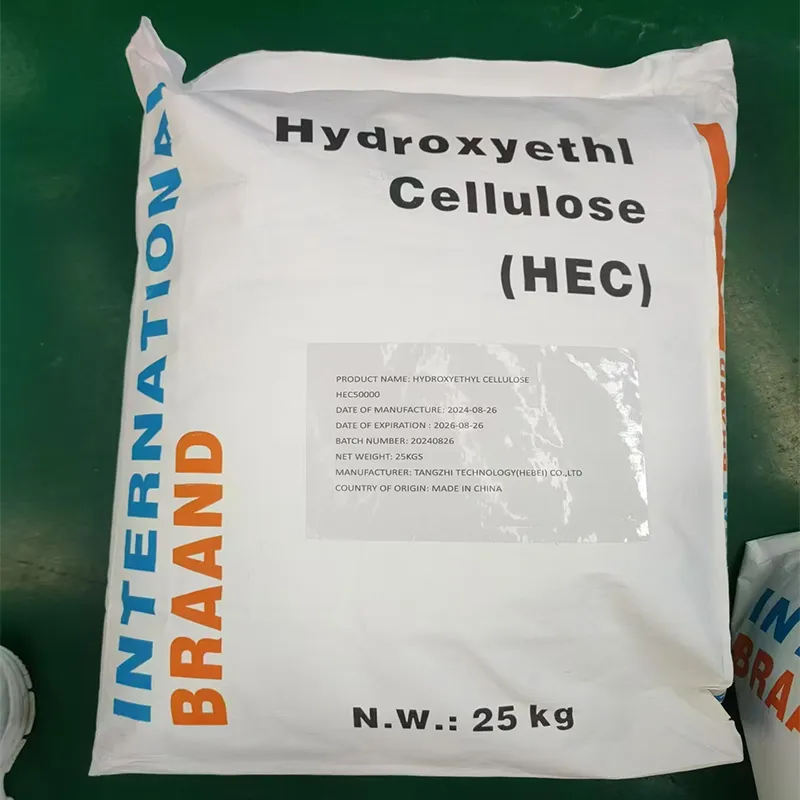
Hydroxyethylcellulose Hair Benefits
Hydroxyethyl cellulose (HEC) is an innovative and versatile ingredient that has gained popularity in the hair care industry. Derived from cellulose, a natural polymer, HEC is utilized in various hair products due to its remarkable properties. This article explores the numerous benefits of hydroxyethyl cellulose for hair, making it an essential addition to your hair care routine.

One of the primary advantages of HEC is its ability to act as a thickening agent. By incorporating hydroxyethyl cellulose into shampoos, conditioners, and styling products, manufacturers can enhance the texture and viscosity of the formulations, providing a luxurious experience for the user. This thickness not only improves product application but also ensures better coverage for effective hair treatment.
Additionally, hydroxyethyl cellulose is known for its exceptional water retention properties. This characteristic helps to retain moisture in the hair, reducing dryness and frizz. When included in hair care products, HEC works to create a protective film around each strand, locking in hydration and promoting overall hair health. As a result, hair becomes more manageable, softer, and more vibrant.
Moreover, hydroxyethyl cellulose provides excellent film-forming properties, which offer long-lasting hold for hairstyles. This makes it a favored ingredient in styling gels, mousses, and sprays, as it allows for flexibility without compromising the hair's natural movement. Hair styled with HEC-based products remains flexible, ensuring that it holds its shape throughout the day.
In conclusion, hydroxyethyl cellulose (HEC) is a beneficial ingredient for hair care. Its thickening abilities, moisture-retaining qualities, and film-forming properties make it a game-changer in the formulation of hair products. Whether you're looking to maintain hydration, achieve a desired style, or simply enhance the overall health of your hair, incorporating HEC into your hair care lineup is a wise choice. Embrace the advantages of hydroxyethyl cellulose and elevate your hair care experience to new heights.
Hydroxyethylcellulose Skin Benefits
In recent years, hydroxyethyl cellulose (HEC) has gained increasing attention in the cosmetics and skincare industries for its remarkable skin benefits. As a versatile and non-ionic thickening agent, hydroxyethyl cellulose in cosmetics provides a range of functional and aesthetic advantages.
One of the primary benefits of hydroxyethyl cellulose in skin care is its exceptional ability to improve the texture and stability of products. This ingredient enhances the consistency of creams, lotions, and gels, ensuring a smooth application. Its thickening properties allow for a more luxurious feel on the skin, enhancing the overall user experience. Furthermore, HEC is known for its ability to provide excellent moisture retention, making it an ideal addition to hydrating formulas. By forming a protective barrier on the skin's surface, hydroxyethyl cellulose helps to lock in moisture, preventing transepidermal water loss and leaving the skin feeling supple and hydrated.

Additionally, hydroxyethyl cellulose possesses unique film-forming properties. When applied topically, it creates a semi-permeable film that not only helps in maintaining moisture but also acts as a protective layer against environmental aggressors. This is particularly beneficial for sensitive skin, as it can shield against irritants while still allowing the skin to breathe.
Moreover, hydroxyethyl cellulose is considered safe and non-irritating, making it suitable for all skin types, including sensitive skin. Its gentle nature ensures that it does not cause adverse reactions, which is crucial in today’s market where consumers are becoming more conscious of ingredient safety.
In conclusion, incorporating hydroxyethyl cellulose into skin care products offers a multitude of benefits, from enhancing texture and hydration to providing a protective barrier. As the industry continues to evolve, the use of hydroxyethyl cellulose in cosmetics demonstrates the growing trend toward effective and safe skincare solutions.
HEC FAQs
What are the performance characteristics of HEC? |
| Hydroxyethyl cellulose (HEC) is a versatile, water-soluble polymer with several key performance characteristics. It is known for its thickening, gelling, and stabilizing properties, making it ideal for use in a wide range of industries, including pharmaceuticals, cosmetics, and construction. HEC enhances the viscosity of liquids without affecting their clarity and provides excellent water retention. It is also resistant to high temperatures and salts, ensuring stability in diverse environments. Additionally, HEC is biodegradable, non-toxic, and compatible with many other ingredients, contributing to its effectiveness in formulations like lotions, adhesives, and paints. |
What are hydroxyethyl cellulose's other names? |
| Hydroxyethyl cellulose (HEC) is a water-soluble polymer derived from cellulose, commonly used as a thickening, gelling, and film-forming agent in various industries. It is known by several other names, including: HEC (abbreviation) Hydroxyethylated cellulose Cellulose hydroxyethyl ether Hydroxyethylated cellulose ether Cellulose ether |
Is hydroxyethyl cellulose safe for skin use? |
| Yes, hydroxyethyl cellulose (HEC) is considered safe for use on the skin. It is non-toxic, hypoallergenic, and does not irritate skin, making it suitable for sensitive skin applications. Many skincare and cosmetic products incorporate HEC due to its excellent compatibility with other ingredients, providing a smooth and pleasant application experience. |
How should hydroxyethyl cellulose (HEC) be stored? |
| Hydroxyethyl cellulose (HEC) should be stored in a cool, dry place away from direct sunlight and moisture. It is best to keep it in a tightly sealed container to prevent contamination and degradation. Proper storage will ensure the integrity and effectiveness of the product over time, allowing you to achieve the best results in your formulations. |
Can hydroxyethyl cellulose (HEC) be mixed with other ingredients? |
| Yes, hydroxyethyl cellulose (HEC) can be easily mixed with a wide range of ingredients, including water, oils, and surfactants. It is compatible with many cosmetic and pharmaceutical components, enhancing the overall performance of formulations. When incorporating HEC, it is recommended to disperse it in water first or mix it at moderate temperatures to ensure optimal hydration and viscosity. |
Does hydroxyethyl cellulose (HEC) have any environmental benefits? |
| Hydroxyethyl cellulose (HEC) is derived from natural cellulose, making it a biodegradable and environmentally friendly option compared to many synthetic thickeners. Its low toxicity and easy dispersion in water also contribute to its sustainable profile. Using HEC helps promote eco-friendly practices in product formulation while maintaining performance efficiency. |


